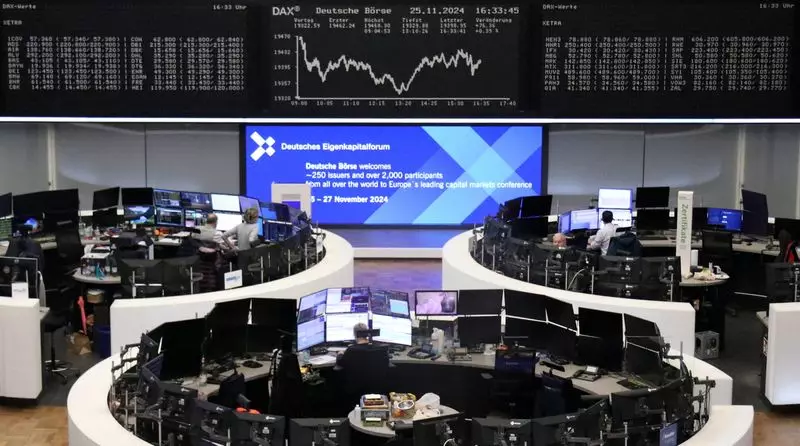European stock markets displayed remarkable resilience on Thursday, reaching near one-month highs, as investors appeared unfazed by the political upheaval in France. Following a decisive vote that ousted Prime Minister Michel Barnier’s government, the pan-European STOXX 600 index experienced a modest increase of 0.2% by 0945 GMT. This marks the sixth consecutive day of gains for the index, indicating a growing confidence among investors even in the face of potential instability within the French government.
The recent parliamentary vote to dismiss Prime Minister Barnier—a move anticipated by many—results in his anticipated resignation, which will position him as the shortest-serving prime minister in the history of modern France. As the political landscape teeters on the brink of uncertainty, doubts loom around the government’s ability to establish a stable administration or formulate a budget for the year 2025. However, the French constitution provides emergency protocols aimed at preventing situations akin to U.S. government shutdowns, which may alleviate some of the concerns regarding fiscal governance.
Market Response: An Indication of Investor Sentiment
Market analysts view the tepid reaction of investors as a sign of acceptance rather than panic. Susannah Streeter, the head of money and markets at Hargreaves Lansdown, noted that the equity markets’ modest response to the vote was expected. Investors seemed prepared for this eventuality, adopting a ‘buy on rumors, sell on news’ strategy, which minimized the anticipation of drastic market shifts. Consequently, the risk premium associated with holding French bonds compared to German Bunds saw a decline from its highest level in over a decade, implying a lessened aversion to French debt.
The French corporate sector exhibited a mixed performance amid these unfolding events. While major banking institutions such as BNP Paribas, Societe Generale, and Credit Agricole saw gains ranging from 1.7% to 2.8%, other sectors reacted differently. The substantial 14% surge in shares of German copper producer Aurubis followed a favorable dividend proposal, showcasing the notable contrasts within different market sectors. Conversely, oil giant Shell’s shares dipped by 1% following its announcement of a joint venture with Norway’s Equinor, indicating that not all corporate news remained buoyant.
Upcoming Political Developments
Looking ahead, President Emmanuel Macron is anticipated to address the nation in a televised speech set for 1900 GMT, where he is expected to name a new prime minister. The speed at which political changes are occurring will be crucial, especially as the government gears up for the ceremonial reopening of Notre-Dame Cathedral this Saturday. The reactions from both the political and financial sectors in France in the coming days will likely shape investor confidence and market sentiment as the country seeks to navigate its political uncertainties.
While external factors such as political instability often trigger cautiousness within financial markets, the current sentiment within European stocks suggests a robust underlying confidence among investors, ready to adapt to the ever-changing political climate.

